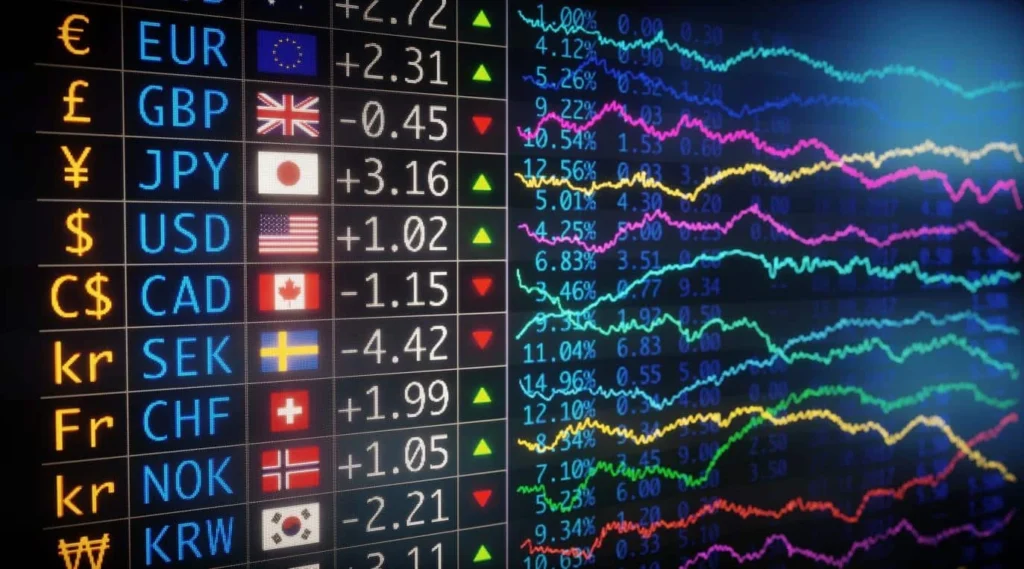Forex Legality and Crypto Momentum in Thailand: Key Trading Trends for 2025
Introduction
In Crypto Trends in Thailand 2025, Thailand’s digital investment space is expanding rapidly. While cryptocurrency trading continues to gain regulatory recognition and user traction, forex remains a topic of legal uncertainty. With increased investor interest in both sectors—especially among digital-native, risk-tolerant individuals—understanding the regulatory, behavioral, and market dynamics is essential for navigating this evolving environment.
Regulatory Landscape: Crypto’s Climb, Forex’s Constraint in Crypto Trends in Thailand 2025
Thailand’s forex market is not illegal, but access is tightly controlled. The Bank of Thailand (BoT) and the Securities and Exchange Commission (SEC) permit only authorized financial institutions, such as licensed banks and brokers, to participate in foreign exchange trading. This limits direct access for most retail investors.
In contrast, cryptocurrency regulation has seen significant evolution. Thai authorities have introduced licensing for local exchanges like Bitkub and Zipmex, with growing oversight over wallet providers, custodians, and token issuers. The government’s relatively supportive stance on blockchain innovation has contributed to the rise in crypto’s legitimacy.

Credit from : Arch Daily
Market Behavior: Offshore Brokers and Gray Zones in Crypto Trends in Thailand 2025
Despite the legal hurdles, forex activity among retail traders persists—often via offshore brokers. These platforms operate in regulatory gray zones, enticing users with high leverage, bonus incentives, and fast withdrawals. However, these offers come with heightened risk. Without legal recourse or investor protections, users face significant exposure to fraud, manipulation, and sudden platform shutdowns.
This contrasts with crypto platforms, where investors are more likely to use domestically regulated exchanges. Although crypto markets remain volatile and subject to capital gains taxes, users often perceive them as more transparent and accessible than unregulated forex options.
Demographics and Behavior: A Young, Risk-Tolerant Audience in Crypto Trends in Thailand 2025
Both forex and crypto markets in Thailand appeal to similar user groups: predominantly under 35, digitally savvy, and eager to pursue alternative income streams. Social media platforms like TikTok, Telegram, and YouTube have amplified interest, often framing high-risk trading strategies as viable side hustles.
FOMO (fear of missing out) plays a central role, particularly with crypto’s explosive growth. This emotional driver—combined with limited traditional investment education—pushes many users into speculative trading without fully understanding the legal or financial implications.

The Crypto Effect: Can Regulatory Success Spill Over to Forex?
Thailand’s growing support for cryptocurrency could influence broader financial liberalization. Some analysts suggest that as crypto becomes further integrated into regulated finance, pressure may build to modernize forex rules as well. The potential for tax revenue, tech innovation, and investor inclusion may incentivize policymakers to reconsider existing forex restrictions.
However, given the focus on capital control and currency stability, significant shifts in forex regulation are unlikely in the immediate term. Still, crypto’s regulatory progress demonstrates that change is possible when driven by clear demand and managed risk.


Forecast: What Should Traders Prioritize?
Forex Outlook
- Legal access remains limited to institutions.
- Retail traders using offshore brokers face major risks.
- Regulation unlikely to loosen significantly in the short term.
Crypto Outlook
- Regulatory structure continues to strengthen.
- Domestic exchanges offer safer on-ramps.
- Volatility remains high, but market maturity is improving.


Conclusion: Navigating 2025’s Investment Terrain
Thailand’s trading ecosystem in 2025 is defined by two distinct paths. Crypto is moving into regulated territory, benefiting from clearer rules and broader adoption. Forex, by contrast, remains restricted and risk-laden for retail traders operating outside the legal framework.
Investors should be cautious, informed, and strategic. For newcomers, regulated crypto platforms may provide a safer entry point into digital asset markets. Those considering forex should understand the regulatory limitations and avoid unlicensed operators.
As always, the safest strategy starts with education—and a healthy dose of skepticism toward promises of guaranteed profits.




